Stay in the know on all smart updates of your favorite topics.
Demoday #28: Designing for Circularity in the Port of Amsterdam
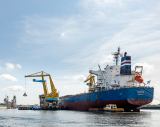
During Demoday #28, we focused on one of the key challenges in the circular transition: how can we make the Port of Amsterdam fully circular?
The Amsterdam port is one of the largest in Europe. It functions as a major energy hub, where fossil fuels still play a central role, and as an industrial hub, where massive flows of raw materials pass through. The City of Amsterdam has set the ambitious goal of becoming fully circular by 2050. This means the port must transform as well. This is a complex and far-reaching task that requires collaboration and innovation.
In this work session, we zoomed in on circular design: how can we make products and processes circular from start to finish?
A closer look at the port
James Hallworth, Commercial Manager at Port of Amsterdam, opened the session by taking the group on a tour through the world of the port. Located in the western harbour area, the port has two main responsibilities. First, it ensures the smooth and safe handling of all maritime traffic on behalf of the City of Amsterdam. Second, it manages and develops the land and industrial areas around the harbour.
To tackle circularity, Port of Amsterdam applies industrial ecosystem thinking. In nature, waste does not exist, and the same principle should apply here. The port aims to build collaborative networks between companies, where waste flows from one company becomes raw materials for another. There is already significant activity around recycling and recovery, but more can be done in higher-value strategies on the R-ladder, such as repurposing, remanufacturing, and refurbishment. Circular by design is a key concept in this shift.
The port is transitioning from measuring success in tons to measuring added value. This shift also means thinking differently about space: circular systems require space to receive, process, and recover valuable materials from waste streams.
Getting hands-on with circular design
Creating a fully circular production process is easier said than done. That’s why we worked through two real-world cases: construction materials and e-bikes. Participants split into groups and explored what a truly circular production process might look like. We also explored the potential role the port could play as an enabler of circular supply chains.
Some key takeaways from the session:
• Material passports: A digital document containing material properties and origin can greatly simplify recycling and reuse.
• Monomaterials: Products made from a single type of material are much easier to separate and recycle at the end of life.
• Smart synergies: Mapping which companies can use each other’s waste flows as input can unlock huge circular potential.
• Financial incentives: Right now, circular processes are often more expensive than linear ones. Smart financial mechanisms could help bridge that gap.
• E-bike challenges: In the case of e-bikes, batteries were flagged as a challenge. Recycling them is still very difficult, and since they are mostly produced outside of Europe, it’s hard to have control over the production process.
This session invited participants to take a step back and view products through a circular lens. The port has the potential to become a key player in the circular transition, but to get there, it will need ideas, insights, and input from across the network.
<strong>Do you have ideas on how the Port of Amsterdam can become more circular? Or would you like to contribute to future sessions? Get in touch with Noor at noor@amsterdaminchange.com. A big thank you to James Hallworth from Port of Amsterdam for bringing this challenge to the network, and Yanti Slaats (Amsterdam University of Applied Sciences) for moderating the session.</strong>
“We’re not just creating technology for cities—we’re creating better cities for people.” From Global Goals to Local Action: How Amsterdam Is Building a Smarter, Fairer City
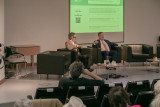
As the world grapples with massive challenges—climate change, rapid urbanisation, digital disruption, and growing inequality—some cities are not waiting for top-down solutions. They are rolling up their sleeves and experimenting with new ways to improve life for everyone, block by block. Amsterdam is one of those cities.
That’s why I was proud to share Amsterdam InChanges approach to smart, inclusive urban innovation at the #CIPPCD2025 conference in Aveiro.
Through our open innovation platform, <strong>Amsterdam InChange</strong>, the city has become a global leader in turning lofty global ambitions into practical, local action. But Amsterdam’s model isn’t built around flashy tech or utopian blueprints. Instead, it’s grounded in an essential question: How can we use innovation to improve people’s everyday lives?
Local Action for Global Challenges
Amsterdam understands that the climate crisis, digital transition, and social inequality can’t be solved by government alone—or by technology alone. That’s why it launched Amsterdam Smart City in 2009 as a public-private partnership. What began as small-scale energy-saving pilots has grown into a community of over 8,500 members, coordinating more than 300 projects across the city and beyond.
The approach is rooted in co-creation. Citizens, companies, knowledge institutions, and government actors come together to design, test, and scale solutions that serve the public good. The values that guide the network are clear: people first, openness, transparency, learning by doing, and public value.
The Doughnut as a Compass
Amsterdam was the first city in the world to embrace Doughnut Economics as a guiding framework. The “City Doughnut,” developed with economist Kate Raworth, helps policymakers balance the city’s ecological footprint with the social foundations that all citizens need: housing, education, health, equity, and more. It’s a tool to align every local decision with both planetary boundaries and human dignity.
This framework has inspired circular construction strategies, neighbourhood energy co-ops, and more inclusive procurement policies. It shows that global concepts can become real when grounded in local practice.
Making Innovation Inclusive
One of Amsterdam’s core beliefs is that smart cities must be <strong>inclusive cities</strong>. That means tackling issues like <strong>mobility poverty</strong>, where rising transport costs and digital-only services make it harder for low-income or elderly residents to get around.
Through the <strong>Mobility Poverty Challenge</strong>, Amsterdam partnered with the Province of North Holland and researchers from DRIFT to understand where and how exclusion occurs—and to design better public mobility systems. Pilot ideas like a “Mobility Wallet” (a subsidy for essential travel) and more inclusive digital apps emerged from real conversations with affected residents.
The same inclusive mindset guides Amsterdam’s digital transformation. In the suburb of Haarlemmermeer, officials flipped the script on e-government. Instead of asking citizens to become “digitally skilled,” they asked how government systems could become more <strong>humane</strong>. This led to simplified interfaces, better access to services, and ultimately more trust.
Responsible Tech and Energy from the Ground Up
Tech transparency is another pillar of the Amsterdam model. The city runs the world’s first <strong>Algorithm Register</strong>, giving the public insight into how AI and automated systems are used in services—from traffic enforcement to housing applications. Anyone can access this register, offer feedback, and better understand how digital decisions are made.
In the energy space, the city supports both bold innovation and careful upscaling. At the <strong>Johan Cruijff ArenA</strong>, used electric vehicle batteries store solar energy, powering concerts and matches with clean backup power. At the same time, a coalition of partners led by Amsterdam InChange is working to scale up Local Energy Systems by collecting lessons learned and creating a toolkit for community-led energy.
What Makes It Work?
If there’s one secret to Amsterdam’s success, it’s the governance model: small, neutral facilitation teams guiding large multi-stakeholder coalitions, anchored by public trust and shared purpose. Regular Demo Days allow project teams to showcase progress, get feedback, and adapt. This culture of transparency and iteration helps avoid the so-called “innovation graveyard,” where pilot projects go to die.
The city also embraces failure—as long as it’s shared and learned from. Reports like “Organising Smart City Projects” openly list lessons, from the importance of strong leadership to the need for viable business models and continuous user involvement.
An Invitation to Other Cities
Amsterdam’s smart city is not a blueprint—it’s a mindset. Start with your biggest local challenge. Bring the right people together. Make space for experimentation. Build bridges between local and global. And, above all, put citizens at the centre.
As international smart city ambassador Frans-Anton Vermast puts it: “We’re not just creating technology for cities—we’re creating better cities for people.”
The III International Conference on Public Policies and Data Science
Life Cycle Analysis serious game
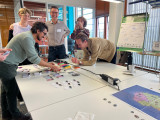
🎲♻️ Doe mee aan onze Life Cycle Analysis Serious Game!
Aanstaande dinsdag organiseren we onze Cyclum Vitae-serious game tijdens de Week van de Circulaire Economie!
Bij Cenex Nederland geloven we in het vertalen van kennis naar impact—en dat is precies waar Cyclum Vitae om draait. Dit boeiende bordspel neemt spelers mee op reis om de principes van een Life Cycle Analysis en de milieueffecten van product productie, gebruik en afvalverwerking te begrijpen.
🌱 Wat is de uitdaging? Spelers navigeren door realistische afwegingen, van het kiezen van materialen en productiemethoden tot het beheren van productgebruik en einde-levensduur. Het doel? Het meest duurzame product ontwerpen terwijl je concurrerend blijft in de markt.
📅 Wanneer: 18 maart, 14:00 - 16:00
📍 Waar: A-Lab, Overhoeksplein 2 (Lab 207)
Voor Engels- en Nederlandstaligen
🔗 Meld je aan via e-mail
Looking for Internship Opportunities in Circular Economy – 6 Months

Hi,
I am a Master’s student at The Glasgow School of Art, specializing in Innovation Design and Circular Economy. Originally from Austria, I am very interested in gaining practical experience through a six-month internship in Amsterdam, a city known for its pioneering efforts in Circular Economy.
My goal is to build professional experience in this field and, ideally, to bring this knowledge back to Austria to help advance sustainable practices there.
For my Master’s thesis, I focused on the fashion industry, particularly on how the textile sector in Scotland can transition to a circular model, with a primary focus on my main stakeholder, <em>Johnston of Elgin</em>.
I would be very grateful to discuss any potential internship opportunities you might have. Please feel free to reach out to me!
Thank you very much for your time and consideration.
CV
https://drive.google.com/file/d/1fVwynP1zffNoemot534el961H-whrosY/view?usp=sharing
Best regards,
Larissa
Reflexive Monitoring course
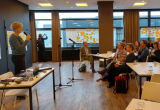
If you're working on system change, you will face plenty of uncertainty and polarisation. The outcome is also unpredictable: we're working on a different future, but we don't know exactly what that will look like. And systems change requires an integrated approach, as different aspects - from technology to politics - have to change simultaneously. So in transitions, merely setting and hitting targets won't do.
This 3-day, Dutch-language course introduces you to valuable knowledge, tools and approaches, aimed at learning and adapting in transitions – for all transition makers who want to improve their monitoring game. It's taught by Barbara van Mierlo, associate professor at Wageningen University & Research and a founder of the methodology 'Reflexive Monitoring in Action' as well as PJ Beers, senior researcher at DRIFT and lecturer at HAS Green Academy.
Sign-up for 2025 is now open.
Perspectief op een ‘Gifvrij Europa’ zonder gevaarlijke PFAS
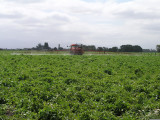
Hoe brengen we Nederlands ZZS beleid en EU beleid “Chemicals Strategy for Sustainability; Towards a Toxic-Free Environment” in de praktijk?
Haast dagelijks horen we over gevaarlijke vervuiling door PFAS, bestrijdingsmiddelen of andere giftige stoffen. Hoe kan dit en vooral, wat zou het Nederlandse beleid moeten zijn voor deze zeer zorgwekkende stoffen in relatie tot het EU beleid 'Chemicals Strategy for Sustainability; Towards a Toxic-Free Environment'? Pakken we dit nu echt goed aan?
Blootstelling aan zeer zorgwekkende stoffen kan leiden tot allerlei ongewenste milieu- en gezondheidseffecten. Er is een lastig spanningsveld tussen de functionaliteit van het gebruik van de diverse chemische stoffen en de ongewenste negatieve effecten op onze gezondheid en het milieu. Waar staan we nu, wat werkt goed in het huidige beleid en waar moet het sterker? Tijdens dit middagsymposium onderzoeken we deze vragen en verdiepen we ons in de knelpunten in consumptiegedrag en essentieel gebruik van ZZS enerzijds en mogelijkheden tot vervanging anderzijds.
Met topsprekers en pitches over oplossingsrichtingen en transitiepaden verkennen we samen met de aanwezigen in de zaal een groene circulaire chemie en brengen we de perspectieven daarvan in beeld. We eindigen met een wetenschappelijk reflectie die echte oplossingen aandraagt. Op deze manier hopen we het bewustzijn en de kennisdeling over een groene circulaire chemie te vergroten en de invoering ervan te stimuleren.
Wees erbij op 9 oktober a.s. en laat je inspireren om bij te dragen aan een duurzamere en gifvrije toekomst!
Voorzitter van het symposium is Bart Krull (SustainLab)
13:00 Ontvangst (met koffie en thee)
13:30 Welkom en opening
- Opening door Antoine Heideveld, (voorzitter VVM, directeur Het Groene Brein) over de relatie van deze middag met Duurzame Dinsdag
- Welkom door Tom Smeelen, sectormanager Gezonde leefomgeving en Klimaat, Provincie Noord-Holland
13:45 Deel 1: Het probleem
Wetenschappelijke feiten en maatschappelijke context blootstelling chemische stoffen en welvaartziekten
- Zorgstoffen, waarom hebben we die?
Het spanningsveld tussen functionaliteit en ongewenste milieu- en gezondheidseffecten in beeld gebracht.
Door Majorie van Duursen, professor Environmental Health and Toxicology, Vrije Universiteit Amsterdam
14:15 Deel 2: Beleid
Een brede schets van het krachtenveld en de bewegingen in het beleid
- Waar staan we nu?
Beleid en aanpak zeer zorgwekkende stoffen Europees (SVHC / Reach / Bestrijdingsmiddelen) en nationaal (ZZS / Impuls Chemische Stoffen). Waar zit de kracht van het beleid, waar moet het mogelijk sterker? Wat zijn de knelpunten in consumptiegedrag en essentieel gebruik van ZZS enerzijds en mogelijkheden tot vervanging anderzijds.
Door Mieke Klooswijk, programmaleider Impulsprogramma Chemische Stoffen, Ministerie van Infrastructuur en Waterstaat
14:45 Pauze (met koffie en thee)
15:15 Deel 3: Pitches over oplossingsrichtingen/transitiepaden voor een groene circulaire chemie
Perspectieven in beeld: industrie, landbouw, politiek, wetenschap en consument. Pitches over de hordes, obstakels, oplossingsrichtingen én successen.
- Industrie: Nieuwe verbindingen voor de chemie (Rosienne Steensma, VNCI)
- Landbouw: Welke mogelijkheden voor en consequenties van vermindering van de impact van gewasbeschermingsmiddelen zijn er? (Volkert Engelsman, EOSTA)
- (Geo)Politiek / Internationalisering: Wat is de betere keuze? (Leo van der Biessen, Royal HaskoningDHV)
- Consumentengedrag: Wat kan en moet er anders? (Thijs Bouman, RUG)
15:45 Deel 4: Het gesprek over oplossingsrichtingen
Dagvoorzitter stelt vragen n.a.v. de pitches en daagt de zaal uit ook vragen te stellen. Een gesprek dat tot echte aanbevelingen leidt...
16:30 Deel 5: Hoe samen verder?
Wetenschap: Reflectie op de pitches en oplossingen vanuit de wetenschap.
Door Prof. Annemarie van Wezel, professor Environmental Ecology, Universiteit van Amsterdam
17:00 Borrel & netwerken
Waag Open: Alledaags activisme

Dat we met de klimaatcrisis voor een hele grote uitdaging staan, is voor veel mensen geen nieuwe informatie. Maar waar begin je als je hier iets tegen wilt doen? Voor veel mensen voelt het als een probleem dat te groot en lastig is om zelf mee te starten.
In het boek 'Alledaags activisme: van onrust naar daadkracht in het klimaat tijdperk' biedt klimaatfilosoof en activist Chris Julien een perspectief voor precies deze worsteling in onze rol in het grote klimaatvraagstuk. Middels wetenschappelijke, filosofische en persoonlijke inzichten laat hij zien dat we veel meer kunnen dan we denken: juist in het alledaagse zitten tal van mogelijkheden voor systeemverandering. Zo kun je met goede moed vooruit in het klimaattijdperk – of dat nu is op de snelweg, in de vergaderkamer of de sportkantine (of alledrie!).
Tijdens Waag Open zal Julien met een interactieve lezing over het boek en gezamenlijk gesprek ingaan op hoe je alledaags activisme in je eigen leven kunt toepassen.
Programma
| 19:30 - 19:45 uur | opening |
|---|---|
| 19:45 - 21:15 uur | lezing door Chris Julien & nagesprek |
| 21:30 - 22:00 uur | afsluitende borrel |
Waag Open
Elke eerste donderdagavond van de maand opent Waag haar deuren! Kom langs om te discussiëren en te doen. Want we gaan niet alleen in discussie over maatschappelijke thema's en de toekomst – je leert daarnaast ook altijd iets praktisch. Iets dat je altijd al hebt willen uitproberen, zoals de 3D-printer in het FabLab, of juist iets dat je nooit had verwacht, zoals uitpluizen hoe DNA in elkaar zit in ons biotech-lab. Waag Open vindt plaats in de maakplaatsen op de eerste en tweede verdieping van het historische Waaggebouw op de Nieuwmarkt.
Toegankelijkheid
Mocht je krap bij kas zitten en wel graag aan dit evenement willen deelnemen, neem dan contact op met sanna [@] waag [punt] org.
Vacature: LCA & Circulaire Economie Specialist (Transport en Energie)
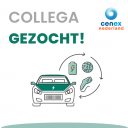
📢 Vacature Alert! 📢
Word jij onze nieuwe LCA & Circulaire Economie Specialist?
♻ 🌿 Stap in een rol waar jij direct bijdraagt aan betekenisvolle initiatieven die de toekomst van duurzame mobiliteit vormgeven!
Terwijl het gebruik van fossiele brandstoffen transformeert naar elektriciteit en waterstof, neemt ook de focus op de levenscyclusimpact en circulariteit van de waardeketens toe. Kom jij ons team versterken? Dan werk je aan baanbrekend onderzoek, analyses en strategieën rond duurzame (technologische en maatschappelijke) innovaties. Met behulp van jouw kennis, Life Cycle Assessments (LCA) en andere tools ben jij de specialist en innovator op weg naar een circulaire mobiliteitssector. Je werkt aan zowel lokale als internationale projecten, werkt samen met diverse andere specialisten en speelt een cruciale rol in deze reis.
🔍 Klaar voor deze uitdaging? Ontdek ⤵ hoe jij een verschil kunt maken!
💼 Locatie: Hybride (Amsterdam kantoor en thuiswerken)
⏰ Contract: Vast, fulltime (37 uur/week, 32 uur bespreekbaar)
💡 Sluitingsdatum: Geen specifieke datum, we zoeken de juiste match!
Klik op de link om het volledige vacaturedocument te lezen en te solliciteren. We kijken ernaar uit om van je te horen!
Building local mini-economy within planetary boundaries

Scroll naar beneden voor de Nederlandse versie
Growth is an end in itself, dictates the current economic model. For only growth would keep our economy going and be indispensable to further sustainability. At the same time, our planet is being depleted by this drive for green growth.
Is it time to abandon economic growth as a social ideal? And then what are workable, more social alternatives?
More and more business owners are opting for sustainable operations. They settle for less financial gain to do valuable work with positive social and environmental impact. The rise of the commons movement, housing-, energy- and food cooperatives, as well as social initiatives in health and welfare, show that people want to stand together for values other than financial gain.
Achievable and real alternatives
New economic models offer different perspectives for considering the economy as part of a society. They offer tools to make that economy more equitable and sustainable. Yet the new economic thinking is still often dismissed as unrealistic and unachievable. Only by trying out these theories in practice can we demonstrate that these are real alternatives.
New economic thinking, New economic acting
To experiment with new economic theory and models in practice, the Amsterdam Economic Board has started the New Economic Models exploration. In April, we introduced the living lab project “New Economic Thinking, New Economic Acting” at the Marineterrein in Amsterdam. In this we work on socio-economic experiments, together with AMS Institute, AHK Culture Club, And The People, Bureau Marineterrein, Kennisland, The Next Speaker and the knowledge coalition ‘Art, Tech & Science’.
The Marineterrein is the ideal place to do this because it is an official experiment site. Moreover, companies located here are often already working on circular and social projects. Cultural institutions and organisations at the Marineterrein, in turn, can represent what thriving without economic growth could look like and fuel our desire for a new economy.
-----------------------------------------------------------------------------------------------------------------------
Bouwen aan lokale mini-economie binnen planetaire grenzen
Groei is een doel op zich, dicteert het huidige economische model. Want alleen groei zou onze economie draaiende houden en onmisbaar zijn om verder te verduurzamen. Tegelijkertijd raakt onze planeet uitgeput door die drang naar groene groei.
Wordt het tijd om economische groei als maatschappelijk ideaal los te laten? En wat zijn dan werkbare, socialere alternatieven?
Steeds meer ondernemers kiezen voor een duurzame bedrijfsvoering. Zij nemen genoegen met minder financiële winst om waardevol werk te kunnen doen, met positieve sociale en ecologische impact. De opkomst van de commons-beweging, woon-, energie- en voedselcoöperaties en maatschappelijke initiatieven in zorg en welzijn, laten zien dat mensen zich samen sterk willen maken voor andere waarden dan financieel gewin.
Haalbare en reële alternatieven
Nieuwe economische modellen bieden andere perspectieven om de economie als onderdeel van een samenleving te beschouwen. Ze bieden handvatten om die economie rechtvaardiger en duurzamer in te richten. Toch wordt het nieuwe economisch denken nog vaak weggezet als onrealistisch en niet haalbaar. Alleen door deze theorieën in de praktijk uit te proberen kunnen we aantonen dat dit reële alternatieven zijn.
Nieuw economisch denken, Nieuw economisch doen
Om te kunnen experimenteren met nieuwe economische theorie en modellen in de praktijk, verkent Amsterdam Economic Board deze in de verkenning Nieuwe economische modellen. In april introduceerden we het proeftuinproject ‘Nieuw economisch denken, Nieuw economisch doen’ op het Marineterrein in Amsterdam. Hierin werken we aan sociaaleconomische experimenten, samen met AMS Institute, AHK Culture Club, And The People, Bureau Marineterrein, Kennisland, The Next Speaker en de kenniscoalitie ‘Art, Tech & Science’.
Het Marineterrein is de ideale plek om dit te doen, omdat het een officieel ‘experimentterrein’ is. Bovendien zijn de hier gevestigde bedrijven vaak al bezig met circulaire en sociale projecten. Culturele instellingen en organisaties op het Marineterrein kunnen op hun beurt verbeelden hoe bloei zonder economische groei er uit kan zien en ons verlangen aanwakkeren naar een nieuwe economie.
Samenwerken aan transitievraagstukken; wat is er nodig? - Opbrengsten van het Amsterdam Smart City partnerdiner 2024
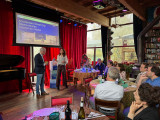
Als Amsterdam Smart City netwerk bijten we ons vast in complexe stedelijke transitievraagstukken. Ze zijn complex omdat doorbraken nodig zijn; van kleine doorbraakjes, tot grotere systeem doorbraken. Denk aan bewegingen rond; organisatie-overstijgend werken, domein-overstijgend werken, en van competitief naar coöperatief. Als netwerk zetten we samenwerkingsprojecten op waarin we gaandeweg ondervinden met wat voor barrières we te maken hebben en wat voor doorbraken er nodig zijn.
Tijdens ons jaarlijkse Partnerdiner op 2 april, hadden we het samen met eindverantwoordelijken van onze partnerorganisaties over de strategische dilemma’s die spelen bij transitievraagstukken. Als gespreksstarters gebruikten we onze lopende onderwerpen van 2024: De coöperatieve metropool, de ondergrond, de circulaire metropool en drijvende wijken. De gesprekken aan tafel gingen echter over wat er aan de basis staat van het werken aan transitievraagstukken. Zo ging het bijvoorbeeld over; het samenwerken aan visies en scenario’s, leiderschap, burgerlijke ongehoorzaamheid en de kracht van coöperaties. In dit artikel bespreek ik beknopt een aantal onderwerpen die onder de aandacht werden gebracht door onze gasten.
Belangen en visie organiseren
Bij een vraagstuk of onderwerp als de ondergrond, gaan we het al snel hebben over de data en de oplossingen. Dat is ‘te makkelijk’. Technisch gaat het allemaal wel kunnen, maar als we daar te snel beginnen met de oplossing lopen we over een aantal jaar weer vast. Het is belangrijk om eerst een stapje terug te doen en een gedeeld belang en gedeelde visie te organiseren.
Hoe je belanghebbenden verzamelt, en de methode om tot een gedeelde visie te komen, dat is wat meer aandacht verdient. Neem het ondergrond vraagstuk als voorbeeld. Op welke schaal organiseer je daarvoor de belanghebbenden? Aan de oppervlakte hebben we Gemeentelijke en Provinciale grenzen, maar in de ondergrond liggen netwerken van kabels en leidingen die op andere schaal zijn geïnstalleerd en hebben we te maken met bodemtypologieën met verschillende behoeften.
Samen voorstellen en voorspellen
Dat waar je naartoe wilt werken, dat moet van iedereen voelen. Het is belangrijk om een setting te creëren van gedeeld eigenaarschap, waarin iedereen zich ook gehoord voelt, en dat je voelt dat de mensen met wie je gaat samenwerken ook voor jouw belangen op zullen komen. Om samen tot een visie te komen, is het belangrijk om te werken aan scenario’s en die samen te doorleven. Je moet het dan niet alleen hebben over waar je heen wilt, maar ook uitwerken wat er gebeurt als je niets doet of als het helemaal verkeerd uitpakt.
De scenario’s zouden op waarden moeten rusten. Het beeld wat bij de scenario’s hoort is veranderlijk, maar de waarden niet. Samen ben je continu in samenspraak over wat de waarden betekenen voor het verhaal dat je creëert.
Leiderschap en een interdisciplinaire werkwijze
Transitievraagstukken en bovenstaande aanpakken verdienen een bepaald soort leiderschap. Zo zou een leidinggevende bijvoorbeeld een veranderlijke en faciliterende houding moeten tonen, en moet hij/zij vanuit waarden werken die inspireren en verbinden. Het zou meer moeten gaan over het faciliteren van doeners, het stimuleren van doelgericht samenwerken in plaats van taakgericht en ruimte bieden voor menszijn en persoonlijke expertises. Met dit laatste wordt verwezen naar een stukje burgerlijke ongehoorzaamheid. Om dingen die we belangrijk vinden in gang te zetten moeten we soms even los kunnen denken van onze organisatiestructuren en functies. We zouden wel wat vaker mogen appelleren aan ons menszijn.
Meer faciliteren en minder hiërarchie helpt ons om beleid en praktijk dichter bij elkaar te brengen, en om van competitief naar meer coöperatief te bewegen. Als je naar de uitvoering gaat mag de kracht verplaatsen naar de uitvoerders. De machtsverschuivingen tussen leidinggevenden en de doeners, met specifieke rollen en expertises, mag in een constante wisselwerking rond gaan.
Ook interdisciplinair samenwerken aan transitievraagstukken zal nog meer moeten worden gestimuleerd, en misschien wel de norm moeten worden. Bij overheden en bestuurders bijvoorbeeld, zijn transitie thema’s verdeeld over domeinen als energie, mobiliteit, etc. maar de vraagstukken zelf zijn domein overstijgend. Als voorwaarde zou je kunnen stellen dat je altijd twee transities aan elkaar moet koppelen. We zouden meer inspirerende voorbeelden moeten laten zien waarbij verschillende domeinen en transities aan elkaar worden gekoppeld, door bijvoorbeeld overheden.
Publiek-privaat-civiel
Publieke, private en civiele partijen zouden nog meer naast elkaar aan tafel mogen, in plaats van tegenover elkaar. Bedrijven kunnen verzuild zijn, of zich zo voelen, en zouden nog meer om zich heen kunnen kijken en samenwerken. Niet alleen met overheden, maar ook met civiele organisaties. Er zijn vaak meer gezamenlijke belangen dan we denken.
In een beweging naar niet-competitief samenwerken kunnen coöperaties een belangrijke factor zijn. Wanneer je meer autoriteit bij coöperaties neerlegt, weet je zeker dat er in de basis voor een wijk, een stad, haar inwoners, een publiek belang wordt gewerkt. Er liggen dan ook veel kansen bij een faciliterende houding vanuit de overheid naar coöperaties toe, en in de samenwerking tussen bedrijven en coöperaties.
Er zijn tijdens dit diner veel onderwerpen aan bod gekomen waar we met het netwerk mee aan de slag kunnen in onze programmering. De input wordt gebruikt voor onze lopende vraagstukken en we gaan de komende tijd in gesprek met partners om te kijken of we van start kunnen met verdiepende sessies of het ontwikkelen van methoden op (enkele van) deze onderwerpen.
<em>Wil je doorpraten over deze onderwerpen, met ons - of een van onze partners? Mailen kan naar pelle@amsterdamsmartcity.com*</em>
Excursie naar Sittard-Geleen en Heerlen – 20 en 21 juni
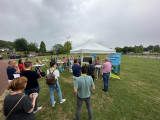
Op 20 en 21 juni reizen we af naar het zuiden om daar van Sittard-Geleen en Heerlen te leren. Ervaar in Heerlen en Sittard-Geleen hoe de slimme stad in de praktijk toegepast wordt en waar deze slimme toepassingen het fysieke en sociale domein verbinden.
In Sittard-Geleen zie je hoe zij in hun proeftuin Zeeheldenbuurt in gesprek gaan met de inwoner over activiteiten en bewegen. In Heerlen-Noord leren we van de stappen die worden gezet in een van de gebieden van het Nationaal Programma Leefbaarheid en Veiligheid op gebied van kansengelijkheid. En bij de Brightlands Smart Services Campus in Heerlen bespreken we hoe je, samen met verschillende partijen, digitalisering kunt onderzoeken en organiseren op het gebied van circulariteit, en in het kader van bestaanszekerheid en participatie. De gebundelde kennis van data science en mensgerichte Artificial Intelligence (AI) leidt tot nieuwe slimme digitale ontwikkelingen en diensten, die de kwaliteit van leven verbeteren.
Conceptprogramma
Dag 1: Proeftuin Zeeheldenbuurt Sittard-Geleen
Met de proeftuin Zeeheldenbuurt speelt de gemeente Sittard-Geleen in op drie thema’s, (Smart City, Participatie en Klimaat adaptatie). Samen met buurtbewoners en vakspecialisten (extern en intern) zijn ze in één buurt aan de slag om een betere toekomstbestendige leefomgeving te creëren en ontmoeting te stimuleren.
De gemeente luistert aan de hand van ‘slimme’ toepassingen naar de inwoner, houdt 0-metingen en monitoren, werkt aan een Digital Twin meetnetwerk en bekijkt dit alles gezamenlijk door de glazen van VR-brillen.
Concept Programma dag 1:
12:00 We starten in ’t Kirkske met vlaai/ kleine inlooplunch en openingswoord ‘jij woont in een proeftuin -beleving’
13:00 1,5 uur interactieve sprintsessie van ReGreeny over de 4 straten herinrichting pilot met als doel dat ze klimaat robuust zijn.
We gaan in gesprek met een inwoner vanuit de 5 gevel sensoren waarin we ingaan op ‘Slim’ op weg naar een gezamenlijk schetsontwerp herinrichting klimaat robuuste straten
14:30 Wandeling naar 3 pilots door de buurt (Evertsenstraat parkeerplaats, Buurttuin, 4 straten & Koalepark)
15:30 Koalepark Amfitheater:
1. Inspiratie vanuit Vlaanderen
2. Smarticipatie & Camenaï verhaal
3. Monitoren Koalepark
16:30 Afsluiting met paneldiscussie
17:00 Borrel & ’t Kirkske spelavond analoog & Limburgs zuurvlees (eigen kosten deelnemer)
Kortom: Hoe kun je in deze buurt samen een Klimaatbestendige betere leef en ontmoet- omgeving creëren? Welke lessen leren we hier? Wat vinden de buurtbewoners van deze aanpak?
Dag 2: Van de Brightlands Smart Services Campus naar Heerlen - Noord
We starten deze dag in de Brightlands Smart Services Campus met twee parallelle tracks na een gezamenlijke aftrap over hoe de Brightlands Smart Services werkt.
Gezamenlijke aftrap:
09:30-10:00- Inloop
10:00-10:10 Welkomstwoord - Walter Pijls (CEO Brightlands Smart Services Campus)
10:10-10:20 Publieke Dienstverlening - Iris Dijkstra (Brightlands Services Campus)
10:20-10:30 Start-Up Challenges: Heerlen Gen AI - Fred Wittelings
Sociale track
10:30-11:00- ’t Heerlens Heitje – Amber-Helena Reisig (t'Heerlens Heitje)
11:00-11:30 | BISS | ELSA Lab + Onderzoekstraject Sittard-Geleen – Vivienne Curvers (BISS-Brightlands Institute for Smart Society)
11:30-12:00 | LIME / Atelier Sociaal Domein – Joost Weling (Hogeschool Zuyd)
12:00-12:30 | In gesprek over technologie: samen met inwoners ontwikkelen en adopteren
12:30-13:30 | Lunch + verplaatsen naar Nationaal Heerlen Noord
Circulaire track
CollaborAll/Monady laten aan de hand van de transformatie van het voormalige DSM-hoofdkantoor in Heerlen zien hoe hun Circulaire Build Hubs werken. De Circulaire Build Hub zorgt ervoor dat al die individuele partijen met elk hun eigen informatie, specialistische inzichten, data, specificaties etc. op een makkelijke en betrouwbare manier naar dezelfde fysieke en digitale werkelijkheid kijken én handelen. De Circulaire Build Hub voorkomt onduidelijkheid, missers, onnodig werk, uitlopende planningen en onnodige kosten, vermindert risico’s en zorgt ervoor dat alle informatie in samenhang beschikbaar is. Dit bevordert efficiëntie en draagt bij aan de overgang naar een circulaire economie door duurzaam materiaalgebruik.
Heerlen- Noord
In de middag bezoeken we Heerlen-Noord, waarin het sociaal en fysiek domein weer samenkomen. Ron Meyer (programmamanager Heerlen-Noord) heet ons welkom en we maken een wandeling door een stukje Heerlen-Noord en bezoeken de Sjpruutshop. Een plek waar ouders van pasgeborenen gratis spullen kunnen halen voor de baby en voor de gemeente een vindplaats van de mensen voor wie we aan de slag zijn. Vervolgens lopen we via een opgeknapte kerk (tot limburgs archief), door een tweetal wijken (horende tot de armste wijken van het land). We leren hoe verduurzaming, renovatie tegen de achtergrond van het willen behouden van uniek cultureel erfgoed, namelijk de mijnwerkerswoningen samenkomen.
Let op, de overnachting is op eigen kosten. Tips voor overnachtingen in Zuid-Limburg:
________________________________________________________
Datum: 20 en 21 juni (Let op, overnachting op eigen kosten)
Tijd: 20ste: 12.00 - 17.00 uur (en aansluitend diner), 21ste: 10.00 - 15.00 uur
Locatie: Sittard-Geleen, Brightlands Smart Services Campus en Heerlen- Noord
<strong>Kosten:</strong> Het event is gratis. Voor het diner vragen wij wel een eigen bijdrage.
Meld je hieronder aan:
Circular Challenge: How Can We Stimulate Circular Business Models in the Electric Vehicle Charging Infrastructure Chain?
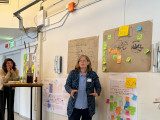
Circular initiatives often struggle to progress beyond the pilot phase, including circular charging infrastructure. Numerous barriers hinder these circular initiatives:
• Lack of data on products and how circular/sustainable they are.
• Difficulty in implementing circularity across the entire production chain.
• Regulatory obstacles.
• Current higher costs associated with circular production, leading to more expensive products.
To overcome these barriers, adjustments to regulations are necessary to better align with circular initiatives, alongside the establishment of shared ownership within the production chain.
Unlocking circular innovation: Launch of the Circular Innovation Collective program guide

Exciting news! We're happy to announce the launch of the Circular Innovation Collective program guide!
Launched during the #WeekofCircularEconomy2024, the guide is a practical roadmap for local governments to foster circular innovation within their cities and regions.
Gathering insights from its first pilot program in the Metropolitan Region Amsterdam, the guide offers practical and comprehensive instructions for scoping out, designing, and executing local innovation programs. Here’s what Egon van Wees from Amsterdam Impact said about the program:
"To transition to an impact economy we need to radically change our approach. We need to work with front runners and entrepreneurs that tackle societal challenges and influence the broader ecosystem. With the CIC approach you can do just that.” - Egon Van Wees, Program Coordinator, Amsterdam Impact (CIC program Funder).
Wanting to empower other cities and regions across Europe, the CIC is sharing its FREE program guide to accelerate the transition to the new circular economy.
Download the guide in the link below
The Circular Innovation Collective is a consortium of impact-driven organizations initiated by Metabolic, Impact Hub Amsterdam, and Bankers without Boundaries. With the support of the City of Amsterdam (Amsterdam Impact), The DOEN Foundation, and Goldschmeding Foundation, this initiative specifically targeted achieving 70% circular textiles in the Metropolitan Region Amsterdam by 2030. Demonstrating the potential for impactful change, CIC is now dedicated to sharing its knowledge, experience, and strategies in an open-source manner.
#circularinnovationcollective #circularcities #ventures
Using legal instruments for a circular food system

Interactive knowledge sharing organized by CircuLaw and the municipality of Amsterdam about how decentralized authorities can use existing legislation and regulations to accelerate the circular economy. With the concrete case of combating food waste, for which 19 legal instruments within a new theme have recently been shared on the CircuLaw platform.
March 12, 2024 - 11:30 - 13:00
- Sustainalab Amsterdam / Hybrid
- Science Park 301
During this knowledge session we will discuss how current legislation and regulations can be implemented by decentralized authorities (municipalities, provinces). are used to accelerate the circular economy. A policymaker from the municipality of Amsterdam, a lawyer and a researcher sit at the table. Policymakers and others can ask questions online in this interactive session.
Lancering: EU Wet- en Regelgeving CircuLaw

Discover how new and existing EU legislation and regulations can help your municipality or province accelerate towards a circular economy. During this webinar we proudly reveal the launch of this important new part of the CircuLaw platform.
This webinar gives policymakers, lawyers, and all stakeholders within decentralized governments the opportunity to gain in-depth insights into the role of European legislation in the transition to a more sustainable future. And what the importance is for decentralized governments.
What can you expect?
Introducing the EU Law and Regulation Section on CircuLaw: A tour of the latest addition to our platform, designed to improve the accessibility of relevant EU legislation for Dutch decentralized authorities.
Importance of EU Regulations: An in-depth discussion on the importance of EU laws and regulations in the circular transition, including examples of how these laws are already bringing about positive changes.
Explanation of 5 important laws: An overview of legislation within the EU that is crucial for the circular economy
Save a seat in Sustainalab
Jonge toekomstmakers gezocht!

Wat is de impact van (platform)technologie op de overheid van de toekomst en haar rol in de (door o.a. technologie) veranderende samenleving? Wil jij de toekomst tastbaar en beeldend maken en meedoen met een groeiende beweging van jonge (t/m 35 jaar) visionairen, denkers en doeners?
Doe dan mee aan de toekomstverkenning publieke platformen georganiseerd door FUTUR en Provincie Zuid-Holland en ondersteund door Scape Agency.
Vanuit verschillende thematische invalshoeken gaan we hiermee aan de slag in groepen van ongeveer 10 jonge professionals vanuit verschillende organisaties (Publiek, privaat en kennis). Een beschrijving van de eerste thema’s vind je hieronder:
Thema's
- Circulair 2050 - De ambitie om in 2050 niet alleen klimaatneutraal, maar ook nog eens onze economie 100% circulair in te richten, vergt een omslag in denken en doen. Hoe buigen we lineaire ketens rond? Waar beginnen we? En cruciaal: welke rol speelt het publieke platform in deze transitie?
- Zicht op maatschappelijke vraagstukken met data – Data is onmisbaar voor het oplossen van maatschappelijke vraagstukken. Hoe zetten we data verantwoord in voor het benutten van deze kansen?
-Digitale Waterschappen – Bestuurt AI in 2050 het waterbeheer, of wordt water juist lokaal beheert?
-Ambtenaar van de toekomst – Als steeds meer taken worden overgenomen door (platform)technologie, wat is dan de rol van de ambtenaar van de toekomst en welke vaardigheden worden gevraagd?
- Participatie – hoe kan de overheid betrokkenheid van inwoners, bedrijven en maatschappelijke organisaties vormgeven bij beleid en besluitvorming?
- Uitvoering van de toekomst – De meeste publieke dienstverleners leveren een stand van de uitvoering aan. Hoe moet de uitvoering en publieke dienstverlening van de toekomst worden vormgegeven?
- Online leefwereld van jongeren – Welke publieke waarden moeten vooropstaan op social media, hoe ziet een dergelijk platform eruit en welke digitale vaardigheden van jongeren zijn cruciaal?
- Tomorrows Governance – hoe verandert de rol, organisatie en wijze van samenwerken van de overheid?
- Mobiliteit en Brede Welvaart - Wat is de impact van (platform)technologie op de bijdrage van mobiliteit aan de brede welvaart van mensen door de bereikbaarheid van banen, voorzieningen en sociale contacten in de stad, en de regio?
- Sociaal Domein – Hoe kan platformtechnologie bijdragen aan de complexe problemen in het sociaal domein? Hoe ga je toe naar een overheid die er voor de inwoner is, in plaats van de inwoner van het kastje naar de muur stuurt.
- Ethiek
Zijn een van die thema's iets voor jou? Meld je dan aan via: https://kennislab.typeform.com/to/MRNbvgIl
Wat betekent meedoen?
- Je sluit je aan bij een themagroep. En doet mee in de voorbereiding, dus het verzamelen van voorbeeldcases uit eigen werk, rapporten, studies, literatuur, films enz.
- Je doet op 13 februari mee met de visiedag (09:00 - 13:00), en bij voorkeur ook de aansluitende verbeeldingsdialoog in het Provinciehuis van de Provincie Zuid-Holland in den haag. Op deze dag werken de themagroepen met ondersteuning van ontwerpers en kunstenaars hun toekomstbeeld uit.
Je bent in maart beschikbaar voor 1 digitale of fysieke sessie voor de verdere uitwerking van het toekomstbeeld.
- Je bent op 4 april aanwezig (vermoedelijk enkel de middag) bij het slotevent ‘publieke platformen’ georganiseerd door de provincie Zuid-Holland in het provinciehuis. Op 4 april ‘exposeren’ de groepen hun toekomstbeeld aan een breder publiek, en wordt er op verschillende manier een dialoog georganiseerd tussen bezoekers, experts en bestuurders.
- Je vergroot je netwerk, je doet inspiratie op voor de vraagstukken waar jij dagelijks mee bezig bent en je hebt vooral plezier.
Join our team! Circular Economy and LCA Team lead
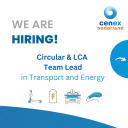
Are you an experienced professional in Circular Economy and Life Cycle Assessments and eager to lead a team of experts in zero-emission mobility and energy infrastructure? If so, we have the perfect opportunity for you!
WHO WE ARE
Cenex Nederland is a not-for-profit research organisation and consultancy specializing on zero emission mobility, energy infrastructure and circular economy. Our mission is to support our customers and partners in making the world a better place to live and travel.
We are a compact but rapidly growing team with complementary expertise. We foster a work environment that is supportive, encouraging self- initiative, and promoting independence. Join our fun and professional team where sustainability and innovation are considered 'business as usual'!
Following the motto 'Alone we can do so little; together we can do so much' we collaborate with governments and industry parties helping then achieve their zero emission transport goals.
Amsterdam may be our hometown, but our activities and ambitious agenda have an international reach. We frequently engage in European or international projects working together with other professionals.
YOUR ROLE
The world of e-mobility is evolving rapidly. Not only are battery and hydrogen electric vehicles becoming an integral part to the transport and energy landscape, but the focus on their lifecycle impact and circular economy within the industry’s value chain is also gaining significant traction. Should you join us, you will be leading a small team of Life Cycle Assessment (LCA) experts and will be contributing in various research and consultancy assignments. Your daily activities would include:
• Leading a growing team of circular economy and LCA experts, offering guidance and support
• Managing EU-fundedR&D projects in the field of transport and renewables
• Conducting research, modelling and analysis of environmental, social and economic lifecycle impacts of products within the transport and energy industries.
• Leading the development of eco-design tools, circular economy roadmaps and policy frameworks to support public or private organisations in achieving their circularity goals.
• Writing project proposals and engaging with prospect clients.
• Reviewing and writing scientific and public-facing reports
• Presenting at conferences, organising training sessions and workshops
YOUR PROFILE
The role of Circular Economy & LCA Team Lead within Cenex NL encompasses a variety of specialisms. We are seeking a new colleague who meets the following requirements:
Essential
• A minimum of five years in roles related to circular economy consultancy and/or research, or other relevant experience.
• Relevant Master’s degree (such as Industrial Ecology, Industrial Design, Engineering, Environmental Sciences).
• Demonstrated project management experience and ability to responsibly manage multiple projects.
• Experienced in using LCA software to quantify environmental, social and economic impact.
• Strong affinity/experience with mobility, transport, and energy sectors and related technologies
• Ability to deliver value and quality to our customers and partners (verbally and written)
• Self-starter and completer of assignments
• Willing and able to travel (inter)nationally with some regularity
• Already living in the Netherlands with an existing work-permit to work in NL Fluent in English, written and spoken
Desirable
• Experience in people management
• Experience with (EU) funding programmes (such as Horizon Europe)
• Dutch (at minimum A2 level) and/or additional languages
• Driving licence
CONTACT DETAILS
Do you see a good match? Send us your <strong>CV and motivation letter</strong> to hello@cenexgroup.nl We look forward to hearing from you!
Amsterdam Region’s Insights on Local Green Deals during COP28
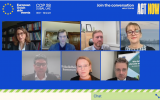
Participating in a COP28 side event organized by the European Commission, the Amsterdam Region delved into Local Green Deals as instrument for achieving the green transition. The primary goal for the session was to uncover actionable strategies and prerequisites essential for fostering public-private collaboration to realize the sustainability transition. Marja Ruigrok, vice-mayor for the municipality of Haarlemmermeer, represented the Amsterdam Region alongside political and business leaders from Braga (Portugal), Aalborg (Denmark) and Skelleftea (Sweden).
Commencing the session, Valentina Superti, DG for Internal Market, Industry, Entrepreneurship, and SMEs at the European Commission, highlighted Europe's ambition to become the first climate-neutral continent by 2050. This necessitates a transformative shift towards sustainability, digitalization, and resilience, which is why the Commission is introducing critical legislation like the Net-Zero Industry Act and the Critical Raw Materials Act.
Ruigrok shared insights from the Amsterdam Metropolitan Region’s efforts in establishing Local Green Deals, emphasizing her role as political ambassador and champion for the Green Deal Bikes initiative. She stressed the importance of cycling, explaining that despite its reputation as a cycling paradise, approximately 20% of young people in the Amsterdam Region can not ride a bike: “If you don’t learn to ride a bike at a young age, you are also much less likely to use a bike for commuting later in life. That’s why in this Green Deal, we stimulate young people to learn to ride bikes, and encourage employers to support commuting by bike. This is crucial because employees who bike take on average 2.5 fewer sick days compared to those who don’t bike.”
Reflecting on success factors, Ruigrok emphasized the need for political commitment, and clear project ownership: "From a political point of view, you need long term commitment, and you have to create ownership. Someone has to take ownership and say ‘this is my project.’ This might be a governmental agency, a company, a knowledge institution, or civil society organisation - but someone has to take the lead. Otherwise, you will continue to talk, and nothing will happen."
Throughout the session, participants provided practical insights and recommendations for fostering successful public-private collaborations in general, and Local Green Deals in specific:
- Lasse Frimand Jensen, mayor of the City of Aalborg, emphasized the necessity of accountability mechanisms: “Mutual commitment is necessary and there must be mechanisms in place to keep each other accountable.”
- Ricardo Rio, mayor of City of Braga and Member of the European Committee of the Regions, highlighted the role of local authorities in mobilizing capacity and engaging stakeholders: “Local authorities need to have the spirit to engage stakeholders and shape partnerships. We also need governance models that tranced political cycles, and that allow people to participate and hold us accountable.”
- Jens Broberg, representing the business sector, emphasized the urgent need for appropriate incentives: “Governments must use policy frameworks to incentivize and regulate businesses and industry towards a green economy.”
- Evelina Fahlesson, vice-mayor of Skelleftea Municipality emphasized the need for open and honest dialogue: “As a municipality, you have to be open about your challenges and willing to start a dialogue with your citizens and companies. Use procurement and new financing models as tools to implement a shared vision.”
- David Nordberg, from Skanska Sweden, encouraged business leaders to align their business models with sustainability ambitions: "Be brave: try new ways of doing business and work in collaborations. In the long term, there is no conflict between sustainability and the economy."
The session highlighted the pivotal role of collaborative multi-stakeholder partnerships in achieving the green transition, emphasizing sustained political commitment, robust governance structures transcending political timelines, and policy frameworks incentivising sustainable businesses.
In the context of COP28, the true challenge lies in replicating these successful approaches on a wider scale, extending beyond the relatively affluent European context to a global landscape with more limited resources. In many regions, the urgent and acute impacts of climate change are already pervasive, amplifying the need for swift, comprehensive action. This necessitates a global and concerted effort of nations and industries, to surmount the hurdles posed by resource scarcity and varying levels of socio-economic development. This calls for collaboration not only within regions but across continents, fostering knowledge-sharing, technology transfer, and collective efforts in tackling climate challenges. The urgency of the climate crisis demands a united global front, where the lessons learned and successes achieved in Local Green Deals can serve as guiding principles towards a more sustainable and resilient future for all.
Research project - Shifting circular: urban infrastructure and policy changes towards renewed territorial metabolisms
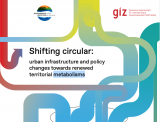
Find out this comparative analysis of critical policies and infrastructures essential for advancing the urban circular transition!
This piece of work draws upon the insights garnered from the experiences of four European cities, including Amsterdam. Reflecting on pivotal levers and obstacles pivotal in catalyzing socio-ecological transformations towards alternative urban metabolisms forms the crux of this exploration. This insightful report, commissioned by the Deutsche Gesellschaft für Internationale Zusammenarbeit (GIZ), the German agency for international cooperation, has been recently unveiled within the Circular Economy Solutions Dialogue (CESD) under the auspices of the Think20 (T20) working group focused on sustainable urbanization.
As a PhD researcher, I am now embarked on another research project on circular policies and strategies. One of my fieldwork is based in Amsterdam, spanning from January to April 2024. I am enthusiastic about establishing connections and potentially collaborating during my stay in the city!
Hoe brengen we weer lucht in het stikstofvraagstuk?
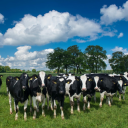
De problematiek rondom stikstof is complex en ingrijpend. Ze is diep verweven met uiteenlopende sectoren, belangen en maatschappelijke discussies. Van de veehouderij tot de industrie, van de woningbouw tot de luchtvaart: de opgave die er ligt is enorm — ook voor overheden. Tegen welke dilemma's lopen zij aan? Hoe is de onderlinge rolverdeling? En welke concrete stappen kunnen overheden zetten om zaken weer vlot te trekken? Een dubbelinterview met Deloitte’s Gijsbert Duijzer, Partner Real Estate bij Deloitte, en Mario Kortman, Director Major Programs Public Sector bij Deloitte.
Gijsbert Duijzer kent de stikstofproblematiek op het platteland van binnenuit. Hij heeft in Wageningen gestudeerd en woont op een boerderij in de Gelderse Vallei: nergens in Nederland is de stikstofopgave groter dan daar. In zijn directe omgeving ziet hij veehouders op dit moment worstelen met hun toekomst-perspectief en signaleert hij veel wantrouwen in de (rijks)overheid.
Mario Kortman heeft uitgebreide ervaring in het begeleiden van complexe en politiek gevoelige dossiers voor de rijksoverheid, onder meer voor de ministeries van Economische Zaken, Sociale Zaken en Financiën. Hij is op z'n best als gangmaker van grootschalige transformaties voor beleidsdepartementen en uitvoeringsorganisaties.
Om te beginnen, waar zit de grootste uitdaging?
Kortman: "In de kern draait het om de vraag: hoe kom je tot een gebiedsgerichte aanpak die werkt? Hoe zorg je dat rijk, provincies en gemeenten elkaar gaan vinden in het belang van de regio? En dat al die verschillende lagen van stakeholders ook echt met elkaar gaan samenwerken? Dat organiseren is bij stikstof al extreem ingewikkeld. In die dynamiek spelen ook technische aspecten een rol. Zoals met wat voor model je stikstof meet en of de uitkomst van zo’n model zwart of wit is. Als je daarover een knoop hebt doorgehakt en een fragiele balans hebt gevonden tussen alle belangen, dan moet je dat ook nog toetsen aan de menselijke maat. Met andere woorden: hoe organiseer je na al die afspraken en modellen en regels ook nog ruimte voor individueel maatwerk? Ga er maar aan staan."
Wat wordt er specifiek van de overheid verwacht?
Duijzer: "Uiteindelijk draait het allemaal om twee vragen: 'Wat wordt het beleid?' en 'Hoe gaan we het uitvoeren?'. In dit dossier hebben we het dan concreet over perspectief en duidelijkheid bieden aan de agrariërs. Als overheid zul je boeren op korte termijn helderheid moeten bieden. Alleen dan kunnen zij onderbouwd keuzes maken. En op de lange termijn zijn betrouwbaarheid en voorspelbaarheid cruciaal, maar wees ook transparant als die helderheid nog niet op alle fronten geboden kan worden."
Bij wie zou de regie moeten liggen?
Duijzer: "Rijk, provincies en gemeenten hebben allemaal een cruciale rol. De rijksoverheid zal stabiele kaders moeten bieden voor de lagere overheden, zodat zij die kunnen invullen. Maar wie gaat er formeel over de natuurvergunning? Dat is de provincie. Zij is het bevoegd gezag dat een uitspraak kan doen over het langjarige perspectief van een boerenbedrijf op een specifieke plek. En die provincies komen net uit de verkiezingen, ze hebben zojuist nieuwe gedeputeerden aangesteld. Zij zitten met veel vragen, kijken naar het rijk, naar het RIVM, naar Europa... Dat helpt niet om snel duidelijkheid te kunnen geven. Ten slotte moeten we ook de rol van de gemeenten niet vergeten, zij zijn degenen die de boeren het best kennen en vaak veel vertrouwen genieten."
Hoe staan we er momenteel voor?
Kortman: "Veel problemen in onze tijd komen neer op het anders inrichten van de balans tussen economische activiteiten en onze natuurlijke omgeving. Dat is niet eenvoudig. Hoe bescherm je het milieu en onze voedselproductie? Hoe versnel je de reductie van uitstoot, maar verlies je geen mensen onderweg? Als rijksoverheid ben je daar niet altijd op ingericht. Veel vraagstukken overstijgen individuele beleidsdepartementen, bevatten interne tegenstrijdigheden die ook in de overheid zelf tot uitdrukking komen of missen een natuurlijke regiepartner in de samenleving. En dan heeft het stikstofvraagstuk nog een eigen minister — wat voor veel andere integrale vraagstukken niet geldt."
"Wat heb je in dit dossier aan consultants die nog nooit een koe van achteren hebben gezien?"
Duijzer: "En laten we niet vergeten: de samenleving zit niet altijd te wachten op een regievoerende overheid. Op het platteland wordt toch vooral met achterdocht naar de plannen uit Den Haag gekeken. Ook niet zo gek, want boerengezinnen worden geraakt in hun bestaanszekerheid en maatschappelijk worden er heel andere verwachtingen uitgesproken richting de boeren. Daar komt nog bij dat de huidige regelingen natuurlijk open staan voor agrariërs die willen stoppen — maar er zijn er heel veel die juist dóór willen. En ook zij staan momenteel op pauze. Ze weten niet óf ze door kunnen, hoe dan en waar. En wat hun buren gaan doen... Mensen weten niet waar ze aan toe zijn."
Vraagt dat om een andere rol van de overheid?
Kortman: "Absoluut. Het rijk moet structureel met onzekerheden leren omgaan. Immers, techniek is ambigu, wetenschap geeft geen eenduidige antwoorden, de spagaat tussen collectieve en individuele belangen groeit... In de afgelopen tien jaar is besturen gewoon veel ingewikkelder geworden. En dat zal ook niet eenvoudiger worden. Daar moeten we ons op instellen. Anders communiceren, anders kijken naar het mandaat van uitvoerders, naar de samenwerking tussen departementen. Dit speelt nu op stikstof, maar eigenlijk op veel méér terreinen, alleen al als gevolg van klimaatverandering."
Duijzer: "Tegelijk moeten we wel, overal waar het kan, die complexiteit zien te reduceren. Anders kom je eenvoudigweg niet uit de startblokken. Op een gegeven moment moet je zeggen: op de plekken waar we kúnnen beginnen met een gebiedsgerichte aanpak, gaan we ook starten. Dat vraagt om bestuurlijk lef: starten met de uitvoering terwijl er nog vragen open staan."
Misschien een gekke vraag, maar wat werkt níet?
Kortman: "We maken het onszelf vreselijk lastig als we met z'n allen blijven zoeken naar die silver bullet, naar die technische uitweg. Vastklampen aan technologische oplossingen is niet de oplossing. En als we ons vastleggen in complexe akkoorden waardoor er geen flexibiliteit meer is: dat werkt ook niet. Het leidt af én het heeft veel ongewenste neveneffecten. Want iedereen die net iets buiten de norm valt, belandt buiten de regeling — terwijl er maar een fractie verschil is met de buren. We moeten realistisch zijn en beseffen dat kleine stapjes voorwaarts soms het maximaal haalbare is."
Duijzer: "En wees daar ook eerlijk over. Veel zekerheden uit het verleden zijn er vandaag niet meer. Neem bijvoorbeeld de bank. Die financierde boeren altijd op basis van twee zekerheden, naast het onderpand: de vergunning en goedgekeurde technologie. Beide staan nu ter discussie. En dat zou best wel eens blijvend kunnen zijn. Alles kan veranderen. En dat geldt voor de overheid net zo. Als provincies nu op zoek gaan naar garanties voor boeren over vijftien jaar, dan gaan ze die niet vinden. We moeten niet vergeten: op dit moment staat de veehouderij praktisch stil. Bij de bank komen vrijwel geen nieuwe financieringsaanvragen meer binnen. Je moet als overheid durven zeggen dat je die duidelijkheid wél kunt geven voor de komende jaren en een richting voor de langere termijn, maar geen zekerheid voor de komende decennia."
En wat werkt wél?
Duijzer: "Momenteel maken we als onderdeel van onze opdracht van het ministerie van LNV een rondgang langs provincies, gemeenten, de georganiseerde landbouw en andere betrokken partijen om de huidige situatie in kaart te brengen. Onze inzet is: laat je niet verlammen door complexiteit. Er zijn voldoende punten waar je wel degelijk duidelijkheid kunt geven en waar je nu al concrete stappen kunt zetten. Ook als die boodschap niet leuk is. Er zijn nu eenmaal plekken waarvan je al weet: op deze locatie kan ik een boer wél perspectief bieden — maar op die andere plek is dat perspectief er gewoon niet. Begin op die punten met het verschaffen van duidelijkheid."
"Stel je als overheid kwetsbaar op, je hoeft niet alles te weten, maar je moet wel in beweging komen."
Kortman: "Precies. Begin klein waar het kan. Durf te starten zonder dat alle problemen al helemaal opgelost zijn. Ga een constructieve dialoog aan, met belangengroepen, banken en boeren, maar mobiliseer ook alle lagen van de overheid. Stel je als regievoerder kwetsbaar op, je hoeft niet alles te weten, maar je moet wel in beweging komen."
Tot slot: zijn er nog do's en don'ts die het stikstofvraagstuk meer lucht kunnen geven?
Kortman: "Een dichtgetimmerd landbouwakkoord of een technische eindwaarde die alles oplost? Dat gaat niet de oplossing bieden in dit dossier. De onzekerheid en complexiteit zijn daar eenvoudigweg te groot voor. Alleen door transparant te zijn over onzekerheden kun je de stikstofproblematiek verteerbaar en hanteerbaar maken. En als je ondersteuning zoekt van consultants, eis dan dat zij niet de materie platslaan in een kortetermijnoplossing — maar duurzaam begrip hebben van jouw uitdaging. Dat ze de strategische problemen snappen én dat ze met praktische, haalbare oplossingen komen."
Duijzer: "Bij Deloitte werken we vanuit begrip van de situatie, de problematiek en de context, zowel op inhoud en techniek als op de dynamiek in het stakeholderveld. Mooi voorbeeld in dit verband: we hebben voor het ministerie van LNV en de provincies de zaakbegeleiders geworven om met de boeren in gesprek te gaan, om samen op zoek te gaan naar een werkbare oplossing. We snappen welk profiel daarvoor nodig is en weten de juiste mensen te vinden. Verder voeren wij verkenningen uit bij alle betrokken partijen. Wat is er nodig om boeren perspectief te bieden? En wat is er minimaal vereist om te kunnen starten met een oplossing? We zijn vooral een verbinder die kan helpen om verbeteringen daadwerkelijk te realiseren en in te richten. Maar daarvoor moet je dus wel die brug kunnen slaan. Want wat heb je in dit dossier aan een consultant die nog nooit een koe van achteren heeft gezien?"
Stay up to date
Get notified about new updates, opportunities or events that match your interests.

